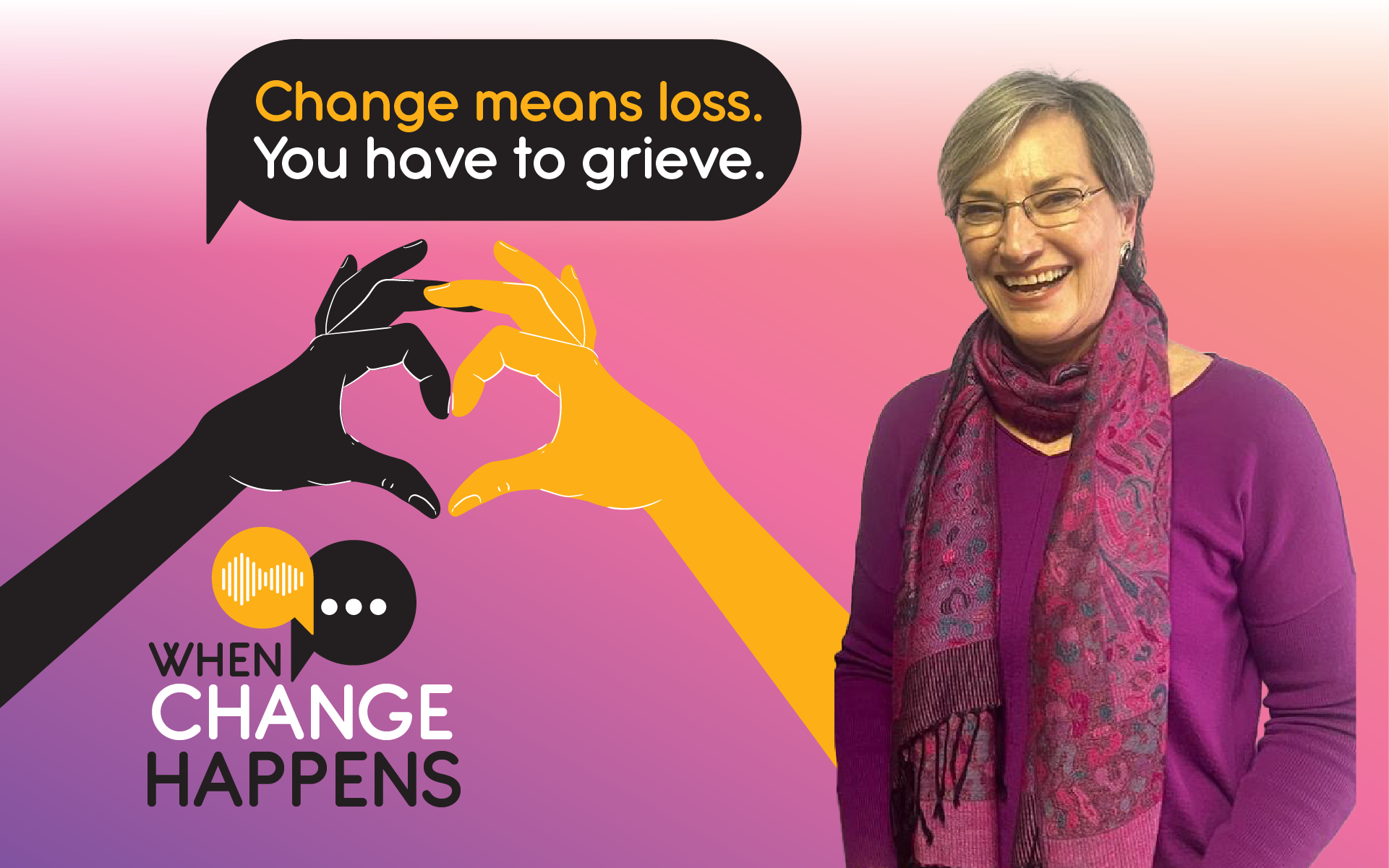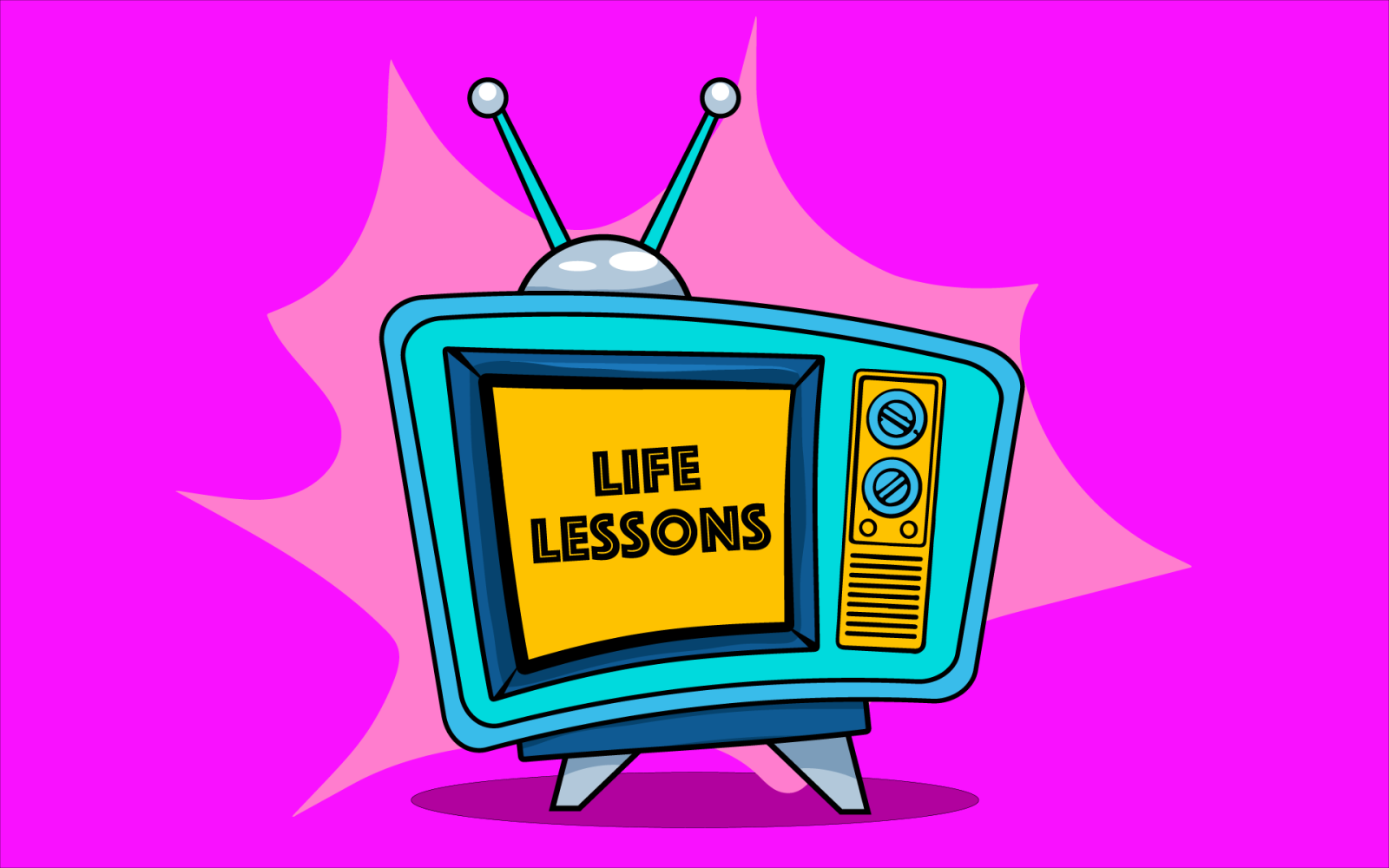Change means loss. You have to grieve.

Sometimes, you have to give up something to achieve something greater.
Wendy Selebi started seriously planning for her retirement ten years ahead of time. As the day finally approached, she remembers, “I was very excited. I told everybody that cared to listen that I will be out of here. And I started counting down, you know?” Her last day was 31 January 2021. Covid meant that they did not go to the office every day. “So, I thought, oh, let me go to the office. It’s my last day. Wow, I’m so excited. I left home in high spirits, excited.”
She did not foresee her own reaction when the reality hit home.
“As I entered the parking lot, I was filled with emotions I had never experienced before or anticipated. As I tapped my card, I started weeping. Because then these thoughts started coming through to me to say, today is your last day. The next time you enter this building, you’ll be a visitor. Somebody must escort you in here tomorrow. You have no team tomorrow. You have no power. So, the emotions flooded me, and I was just weeping.”
Wendy now counsels other people who are going through this dramatic change in their lives. Part of her advice is to recognise the loss you will experience and to allow yourself to grieve. Having walked that road, she understands it from the inside out.
“It’s like a dying of a vision. (In my case,) for 37 years, you had a vision to be successful, to do this, to achieve that. And then, all of a sudden, it comes to an abrupt end. And so, you have to grieve the death of this vision.”
She says Elizabeth Kübler-Ross’s five stages of grief (from her book, On Death and Dying) are applicable in this situation as well: disbelief, anger, negotiation, depression, and finally acceptance. First the disbelief: “Really? Is it me now unemployed?” You may be angry with people around you who no longer treat you with the same respect, or yourself for not managing it better. You may start negotiating in your own head: “If I still write, or do contract work, or consult, I’m not really retired.” If that doesn’t work in practice, you may fall into depression, before (in a best-case scenario) finding a new balance and accepting the new reality.
This is true not only for retirement. All change means giving up something in order to achieve something else.
Megan Scott’s three boys give her enormous joy, but their arrival has meant that she and her husband, Greg, had to give up much of their freedom in terms of time and money, as well as some of their independence – they had to learn that “it takes a village (to bring up a child),” and even more so when there are three of them, all under the age of three.
In order to start his own business, Thapelo Tsiu gave up his salary and the very pleasant lifestyle it could buy, which included living in a security village and enjoying all the facilities, to move back with his family. He wanted the change, he planned it carefully, he never regretted it, but it still meant loss.
In Wendy’s case, she realised ten years before her retirement that she had not saved enough to retain her lifestyle when her salary stopped. She trimmed her budget drastically in order to make up the difference. It was not easy, but necessary.
Those are practical losses. Another huge loss is that of one’s identity. As someone once commented about retirement, “It’s not the doing nothing, it’s the being nothing.” Our careers form one of the most important elements of our self-definition. When you lose that, you can feel unmoored, adrift, unsure of who you are. A former TV personality confessed about their own retirement experience, “I thought, ‘There’s so much less to me than meets the eye!’”
Other changes also involve loss of a certain definition of yourself. Megan found herself dealing with the loss of her self-image as a self-sufficient A-type person who had everything planned; Thapelo lost his definition as a corporate manager; even recovering addict, Costa Carastavrakis, was daunted by the idea of giving up his “party animal” persona – “You mean I can never again have a drink at a friend’s wedding?!”.
However much your rational self may have chosen the change you’re implementing, recognising the loss involved will make it easier to handle the emotional impact. Yes, the new reality has more to recommend it, but the past, whatever it was, also gave you something of value, which you are now giving up. It’s hard. You are allowed to grieve. If you need to cry, do so, says change scientist, Dr Frank Magwegwe. It is not weakness. It is natural.




